In our last PlayStation.Blog post we announced that Gauntlet is coming to PS4 August 11th in the new Gauntlet: Slayer Edition.
For a number of months now the Gauntlet team has been working tirelessly to mold the game into what we fully envisioned. The key points we have wanted to address are Hero depth, gameplay variation, and overall visuals — and we did this by both adding new features and updating existing ones.
Now I’ll let Designer Nils Hansson Bjerke elaborate on the Enemy updates of Gauntlet: Slayer Edition.
What’s New?
As mentioned previously, we have been working a lot to get more variation in Gauntlet: Slayer Edition. The enemies are obviously a big part of that. In Gauntlet 2014 they just weren’t different enough from each other to make the players change their playstyle in any meaningful way.
In Slayer Edition we have gone through the game and re-evaluated every single enemy in the game, leading to changes in all but two. For some we’ve just tweaked movement speeds and hit boxes, while others have received entirely new ability sets. Some enemies have been removed and some completely new ones have been added. We have also given every enemy “family” (mummies, skeletons etc.), a new lower-tier spawner that only spawns the basic units of that “family.” This means we are no longer limited “all or nothing” options when pacing the game.
Bosses
The makings of a great boss is a project within the project. A good boss battle lets the player apply his skills and abilities to a foe that optimally is unlike anything else in the game.
Unfortunately that requires a lot of custom code and content, which is why many games have, from a player perspective, lazy boss battles — like beefed up normal enemies for example. Then we as developers don’t have to deviate too much from the game’s core mechanics that we have spent so much time on getting right.
Now, Gauntlet’s core gameplay revolves around hordes of enemies. Anything straying from that formula gets increasingly more problematic to realize within the game’s framework. When making Slayer Edition we made the decision to focus on improving the 95% of play time you are not fighting bosses. We are of course doing some polish and fixes to them. I think veteran Gauntlet players will want to pay good old Morak another visit in Slayer Edition!
Character Diversity
Gauntlet is, at its core, an arcade game. We don’t have the luxury of rounding out each character class with tons of abilities and options. Arcade games focus on individual skill and the player’s ability to use a limited set of tools and maximize their potential. These limitations are great for creating a “purer,” more immediate gameplay experience, but makes it more tricky to offer the player different play styles.
With Gauntlet we are trying to create really diverse play styles without losing the accessibility of an arcade game. Slayer Edition has four distinctly different character classes, from the Elf’s ranged keep-away game to the Warrior’s melee combat. Designing one enemy that can challenge both equally is very difficult. What I try to do as an enemy designer is create monster groups with synergy between them that together will make them challenging for all the classes in their own way.
Thus, all enemies in Gauntlet are easy to defeat on their own, but combined they should provide a challenge. This is the type of synergy we have worked hard to improve in Slayer Edition while simultaneously making higher-tier enemies more versatile.
Readability
Since Gauntlet is about tons of enemies there is always a struggle with readability. With so much going on, enemies can’t be very complex because there is no way a player will be able to understand complexity in the chaos. They need to be interesting and varied, while also basic enough in their functionality that players can, at a glance, understand what they do and how they behave.
So let’s look at the Grunt Shaman’s previous abilities. Firstly, he summoned walls from the ground. Secondly he summoned a homing, indestructible goat head. Thirdly he buffed Grunt spawners to increase the rate at which they spawned grunts as well as increased the movement speed of said grunts.
Now, of course the player doesn’t have to understand all the little details about an enemy but the more you understand the more fair the game feels and the more you as a player feel in control of whether you live or die. The Grunt Shaman’s old spawner buff was the opposite of that. The impact it had on a battle was quite high but nothing about its visuals signaled that. The goat heads didn’t offer as much interesting counter play and the walls occupied a lot of real estate on the screen considering their small impact.
Enter the new Grunt Shaman. He shoots a big energy ball that splits into two energy balls. He also buffs Grunt spawners so that the Grunts hit harder. BAM! Easy to read, easy to understand. Also, the animators are happy to let you know that the Grunt Shaman now has proper animations.
We hope you have enjoyed our dive into some of the design work that goes into Gauntlet: Slayer Edition.
Now get ready to re-Invade the Darkness — it’s almost time!
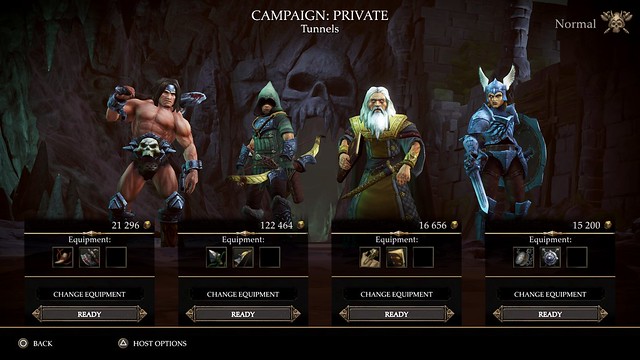
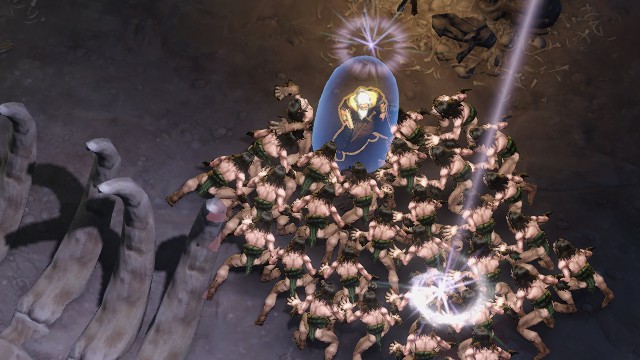
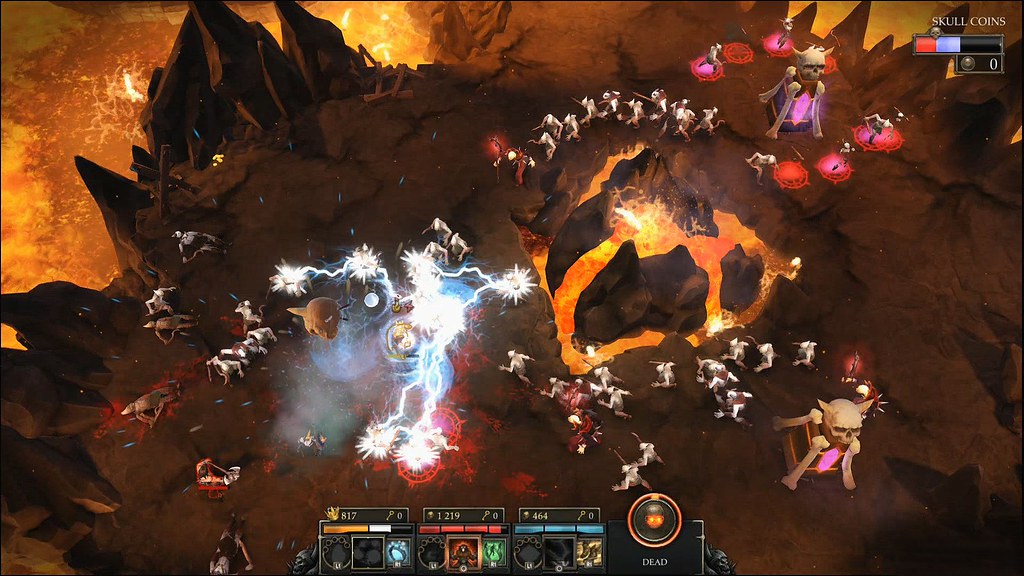
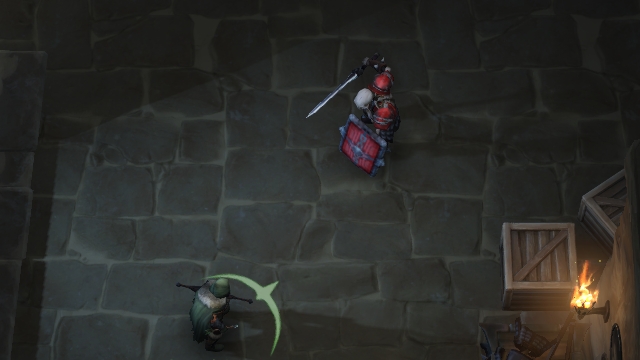
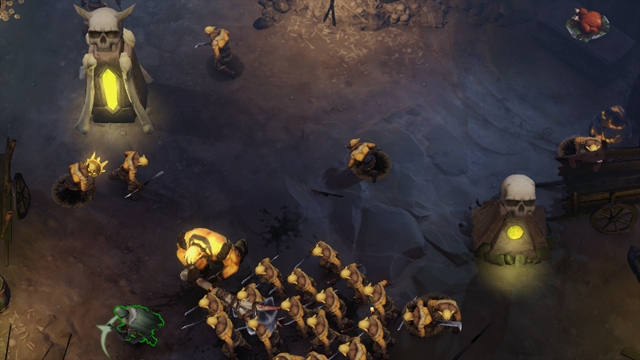
No comments:
Post a Comment